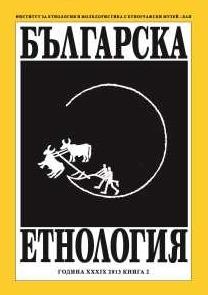Миграцията село-град и Новият човек (по примера на Димитровград и Металургичен комбинат „Кремиковци“)
Rural-urban migration and the New man (according to the example of Dimitrovgrad and the Metallurgical industrial enterprise “Kremikovtzi”)
Author(s): Biliana RaevaSubject(s): Anthropology
Published by: Институт за етнология и фолклористика с Етнографски музей при БАН
Summary/Abstract: The intensive processes of industrialization and urbanization in Bulgaria, which began in the late 40s of the twentieth century, coincided with attempts to transform society according to the prescriptions of socialism. The rural-urban migration goes under the sign of the desire of the ruling Communist Party to create a so-called “New Man“. The cultivated attitudes and forms of behaviour aimed not only to impose the ideological assumptions for the person under socialism, but also supported the adaptation of the influx of peasants into the cities to the urban lifestyle and work in industrial enterprises. One of the methods to achieve this was by controlling the demands for consumption of the migratory flows of people. This paper focuses on the construction of two sites with symbolic meaning for socialism – “the first socialist town in Bulgaria“ Dimitrovgrad (late 40’s – early 50’s) and the Metallurgical industrial enterprise “Kremikovtzi“ (early 60’s), including the changes in the official discourse on the theme of migration from the 70’s – 80’s. Besides marking the stages of industrialization in the country, Dimitrovgrad and “Kremikovtzi“ reflect trends in the socialist urbanization. With the help of research methods such as discourse analysis of texts from the local and national press, as well as propaganda literature, the use of caricature as a historical source, presenting excerpts from interviews with residents of Dimitrovgrad and former workers in Kremikovtzi, the author reveals the expectations (at times, conflicting) of both sides – the party-state and the migrants on the results of migration. The managers wanted to see inspired builders of socialism, while people who had chosen as the end point of their settlement (this included seasonal migrations as well) the two sites of the study were driven by different motives – from supporting the system to searching for personal gain as profitseeking and acquisition of Sofia residence.
Journal: Българска етнология
- Issue Year: 2013
- Issue No: 2
- Page Range: 210-223
- Page Count: 14
- Language: Bulgarian

